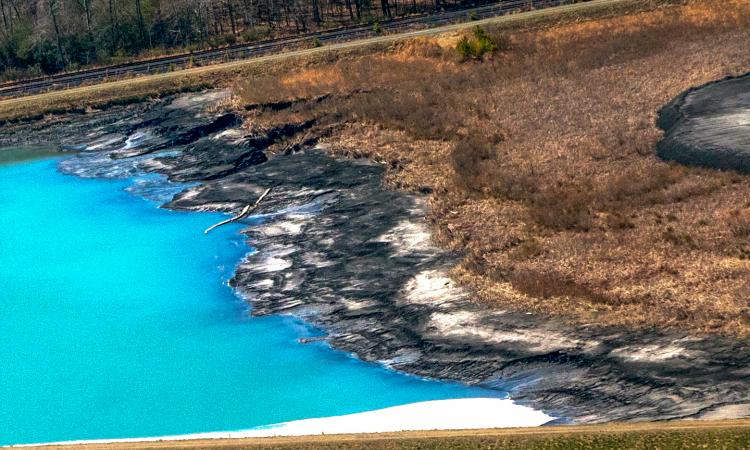
Crackdown on pollution: New Rules aim for swift action
The Indian government has proposed new rules to address land contamination by hazardous substances. These rules, set to take effect in 60 days, aim to fill gaps in existing environmental regulations. The "Remediation of Contaminated Sites Rules, 2024" will cover sites contaminated by hazardous substances, including those mixed with mining, bio-medical, or municipal waste. However, they won't apply to radioactive waste, abandoned mines, or oil spills.
A new committee, the Central Remediation Committee, will be formed to identify contaminated land, assess contamination levels, and develop cleanup plans. It will also determine responsible parties, remediation costs, and liabilities. The government has the authority to take over contaminated land but must pay fair compensation and obtain consent from affected individuals. The Environment Relief Fund may be used for remediation in certain cases, but there are concerns about its recent lack of disbursements.
The proposed rules align with the "polluter pays" principle, requiring polluters to financially compensate for environmental damage. However, the government's recent request for transparency in fund disclosures raises questions about its effectiveness. (MSN, Livemint)
NGT forms Panel to address Dal Lake pollution
The National Green Tribunal (NGT) has formed a committee to address the pollution of Dal Lake in Kashmir. The committee will investigate the sources of pollution, identify responsible parties, and implement remedial measures. The NGT observed that immediate action was required to prevent untreated sewage from entering the lake. The Jammu and Kashmir Pollution Control Committee (J&KPCC) reported that untreated sewage was flowing into Dal Lake and that there were about 910 houseboats in Dal and Nigeen Lake, all of which were discharging wastewater into the lake.
The committee will be composed of representatives from the J&KPCC, J&K Lake Conservation and Management Authority, district authorities of Srinagar, Central Pollution Control Board, and the Union Ministry of Environment, Forest and Climate Change.
The committee will ascertain the sources of pollution in Dal Lake, identify responsible individuals or entities, and take appropriate remedial and punitive actions. They will also prepare environmental management guidelines for houseboats. The NGT has directed the committee to complete its work within three months. The matter has been listed for further proceedings on December 2. (The Print)
India aims to lead next industrial revolution with biomanufacturing policy
India is positioning itself as a leader in the next industrial revolution through its new biomanufacturing policy. The policy aims to address food, energy, and climate challenges by promoting innovation and entrepreneurship in biomanufacturing.
The BioE3 policy focuses on high-performance biomanufacturing, which involves using biotechnological processes to produce products ranging from medicine to materials. It seeks to tackle farming and food issues and promote the manufacturing of bio-based products. The policy is aligned with India's goal of becoming a developed nation by 2047. It offers solutions to climate change, resource depletion, and pollution through innovations like biotextiles and bioplastics.
India imports a significant amount of crude oil, and the policy aims to replace some of this with products made from biomass, plastic waste, and carbon dioxide. This will require advanced technology and scaled-up production. Biomanufacturing can also help address challenges in the dairy industry, such as increasing demand and resource constraints. The policy is designed to streamline these processes and position India as a leader in the next industrial revolution. (Hindustan Times)
Himachal Pradesh introduces water bills for homestays
The Himachal Pradesh government has announced new water billing rules for rural residents and homestays. Rural residents will now pay a monthly bill of Rs 100, while homestays will be charged based on their location.
The government aims to increase rural employment through initiatives like natural farming and homestay development. While homestays in urban areas will face commercial water rates, rural homestays will have lower rates. Some families will continue to receive free water services, including those with low incomes, widows, single women, and individuals with disabilities. (MSN)
NGT criticises Delhi Authorities for lack of clarity on groundwater extraction
The NGT has criticised Delhi authorities for failing to clarify which body is responsible for regulating groundwater extraction in the city. Despite multiple inquiries from the tribunal, the Delhi government, Delhi Jal Board (DJB), and Delhi Pollution Control Committee (DPCC) were unable to provide a definitive answer.
The tribunal expressed frustration over the lack of clarity and directed the Delhi Chief Secretary to ascertain the responsible authority and take action against those violating groundwater extraction regulations. The matter has been adjourned until September 3 for further proceedings.
This incident highlights the need for better coordination and clarity among government agencies in Delhi regarding environmental regulations and responsibilities. The NGT's intervention is a crucial step in addressing the issue and ensuring that groundwater extraction is properly regulated in the city. (The Print)
NGT forms Panel to address Jhansi River pollution
The NGT has established a committee to investigate and propose solutions to the pollution affecting the Pahuj river in Jhansi, Uttar Pradesh. The river, once considered a lifeline for Jhansi and surrounding areas, has been impacted by pollution and encroachment, diminishing its flow and religious significance.
The committee, comprising representatives from the Uttar Pradesh Pollution Control Board, Central Pollution Control Board, Municipal Corporation of Jhansi, Union Ministry of Environment Forest and Climate Change, and the District Magistrate of Jhansi, will visit the site, analyse water samples, and identify the sources of pollution. Based on their findings, they will recommend remedial measures to address the environmental issues.
The district magistrate will serve as the coordinating agency for the committee's efforts. The NGT has scheduled a hearing on November 28 to discuss further proceedings and implement the committee's recommendations. (The Print)
This is a roundup of important policy updates from 16th August to 31st August, 2024. Read our news updates here.
/articles/new-rules-proposed-clean-contaminated-sites-india